This Stakeholder Spotlight post was created in collaboration by CAP and the Ak-Chin Indian Community
Did you know that the potatoes grown at Ak-Chin Farms are sold to Frito-Lay and In-N-Out Burger in Arizona? The next time you enjoy some French fries or a bag of chips from these companies, think about the Ak-Chin Indian Community connection to the food you are enjoying.
In fact, all Arizona tribes continue to contribute to the local economy. There are 22 federally recognized tribes in Arizona, and the Ak-Chin Indian Community is one of the 11 tribes that receive an annual water allocation from the Central Arizona Project (CAP). As a CAP water user located in Pinal County, the tribe uses a portion of its 75,000-acre feet of CAP water for agriculture at the tribally operated Ak-Chin Farms.
Farming is vital to the Ak-Chin people. Tribal Chairman Gabriel Lopez emphasizes, “since time immemorial, our ancestors have farmed this area… it’s in our blood that we’re farmers.” The agricultural teachings of their ancestors are passed onto the younger generation. Chairman Lopez explains that “Ak-Chin” means “mouth of the wash.” It refers to a type of farming that relies on washes created by winter and summer rains.
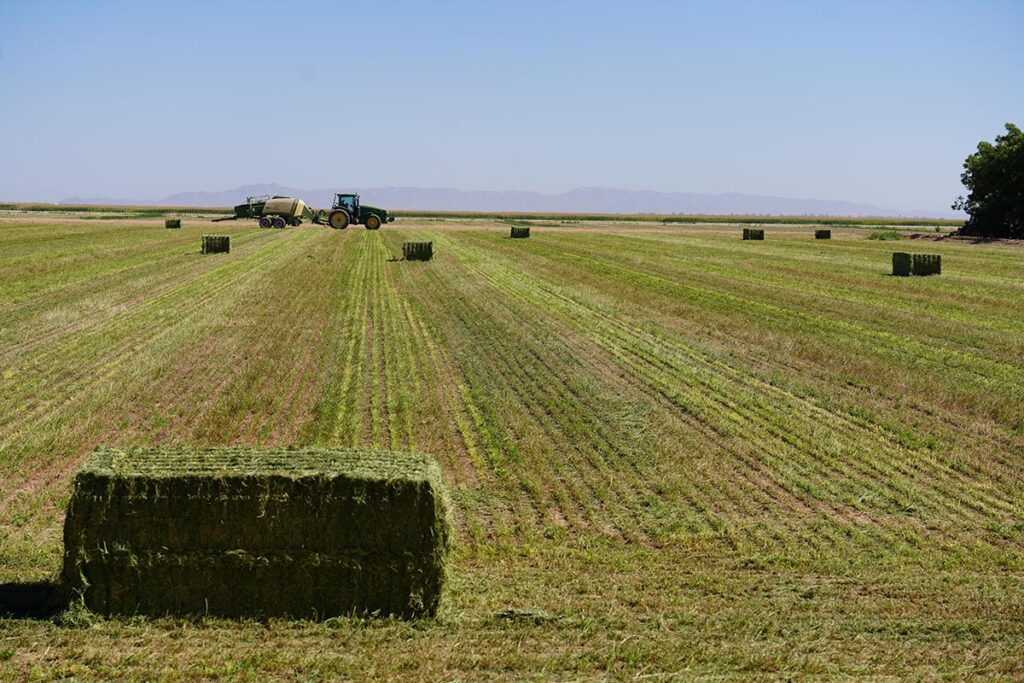
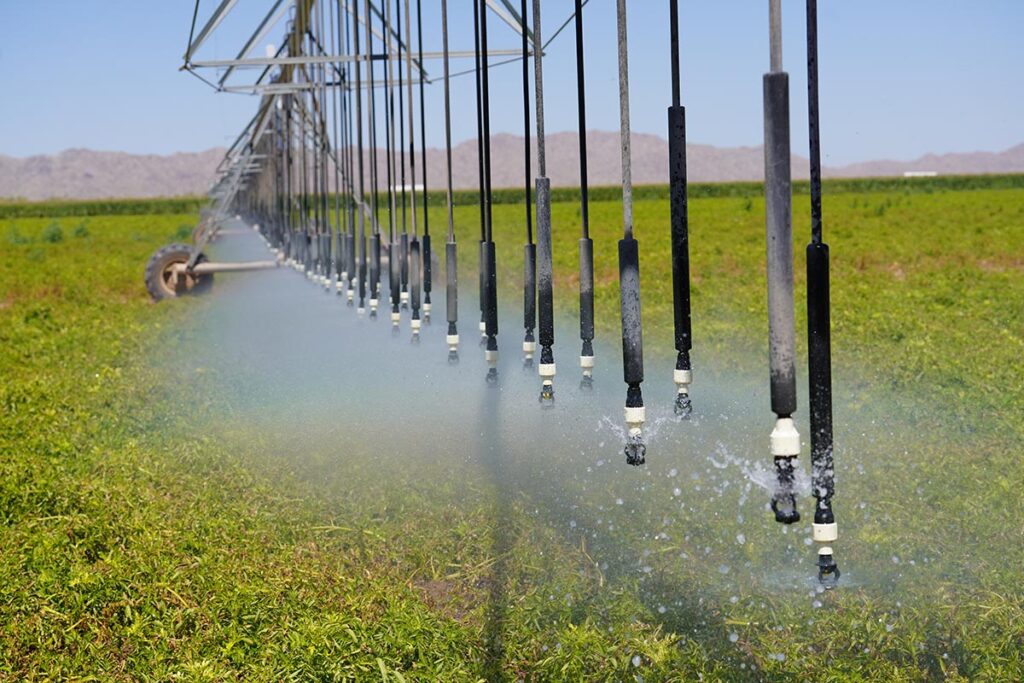
Ak-Chin Farms would not be operating today without the advocacy and leadership of the late Leona Kakar. A tribal member, she ceaselessly advocated for the tribe’s water rights with state and federal officials. Her steadfast leadership contributed to the 1984 historic water rights settlement. Ms. Leona Kakar passed in 2024 but her legacy lives on in the vibrant tribal communities. In honor of her incalculable contributions, the tribe recently produced a video highlighting her extraordinary life.
Proud of the Ak-Chin Farms, tribal leadership invited CAP board members and leadership to visit the operations last year. This visit was an example of CAP’s efforts to engage and continue building a trusting relationship with tribal stakeholders. The farm currently has 16,000 productive acres and growing potatoes, pecans, corn, sorghum, wheat, cotton, alfalfa, barley, and jalapenos.
Another aspect of the working relationship between the tribe and CAP is planning for water outages. The tribe and Ak-Chin Farms work closely with CAP, so impacts to farms operations are managed as efficiently as possible. Farm Manager Damian Murrieta said, “The tribe continues to fight for a stable water supply because it is a consistent economic source for the community … the CAP delivery is extremely important … our customers rely on us to be consistent.”
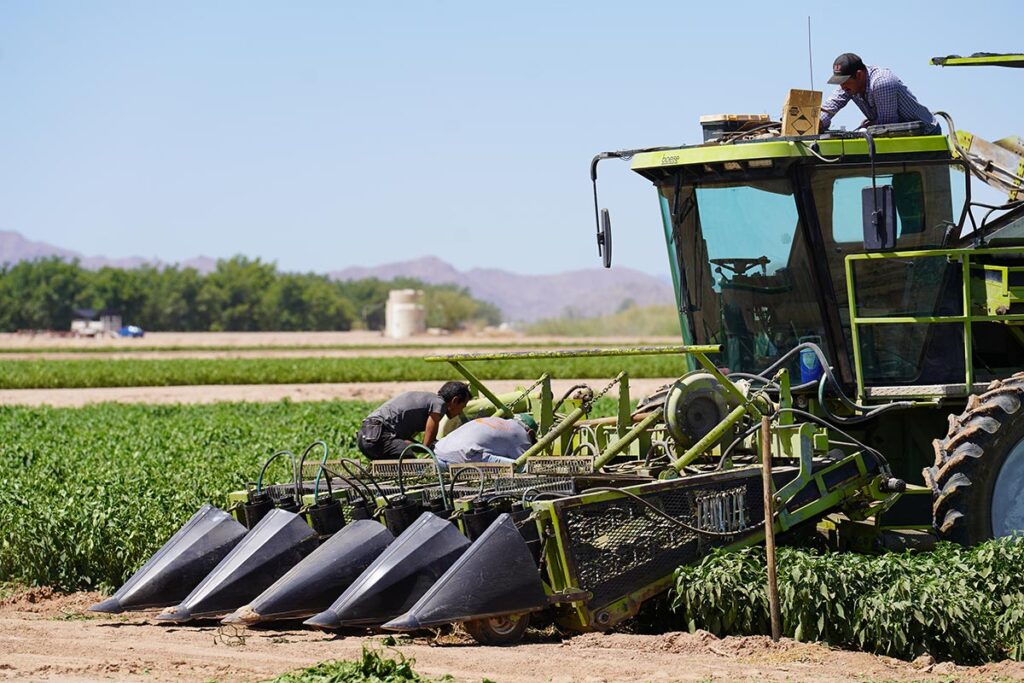
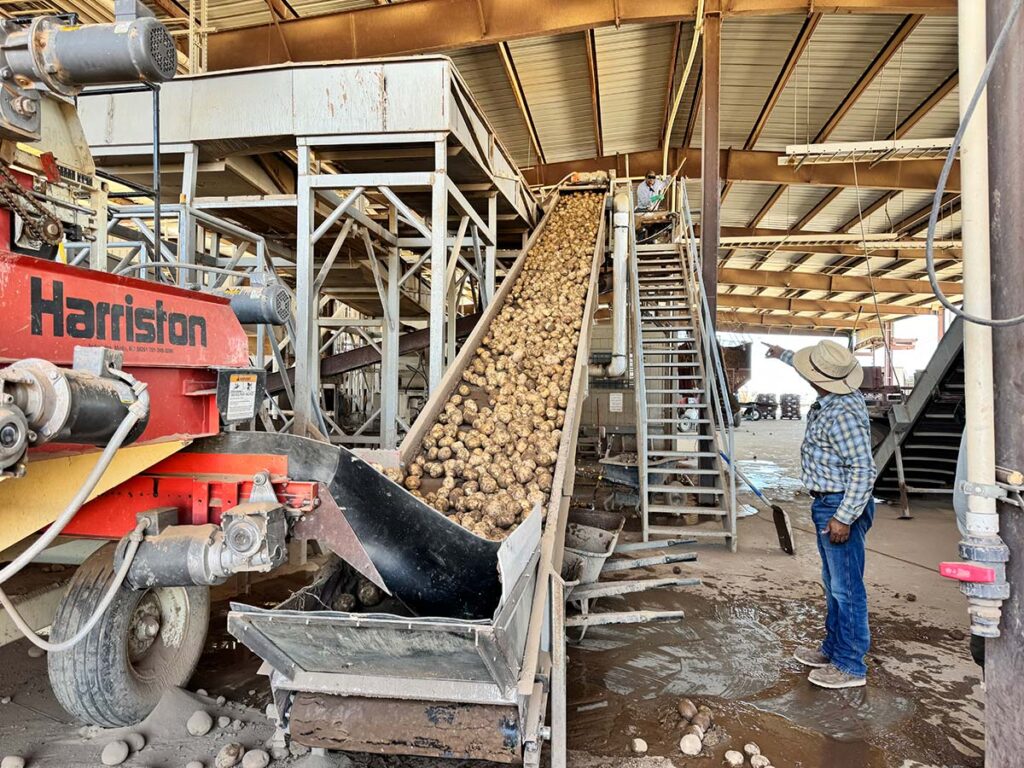
Agricultural workers use hand harvesting, machine harvesting, and drip irrigation. Utilizing double crops techniques, they can grow up to 2,000 acres of sorghum silage that are distributed and sold to multiple dairy companies in Pinal County. The farm also has about 450 acres of pecan trees in production.
Ak-Chin Farms honors the connection between land, water, and culture. Chairman Lopez explains, “we come from the land, and it is part of who we are as O’odham People, and with the teachings of our ancestors, farm the land with the natural weather elements: land, water, air – and that is a big importance of our Him-Dak (Way of Life) … water is life. If we do not have water, our Him-Dak will be unbalanced; we do not have life. We cannot grow our crops, we cannot feed our community, and today we are doing it on a bigger scale – we are feeding the country.”
At the farm’s potato processing plant, the workers begin at the break of dawn, picking and cleaning potatoes. Within 24 hours of harvest, the potatoes are on their way to Frito-Lay and In-N-Out Burger.
Recognition is given to the Ak-Chin Indian Community for their contribution to agriculture, the food industry, and the Southwest region. The farm is the pride and joy of the community. Murrieta emphasizes the importance of the CAP water to the farm. He states, “without water none of this is possible.”
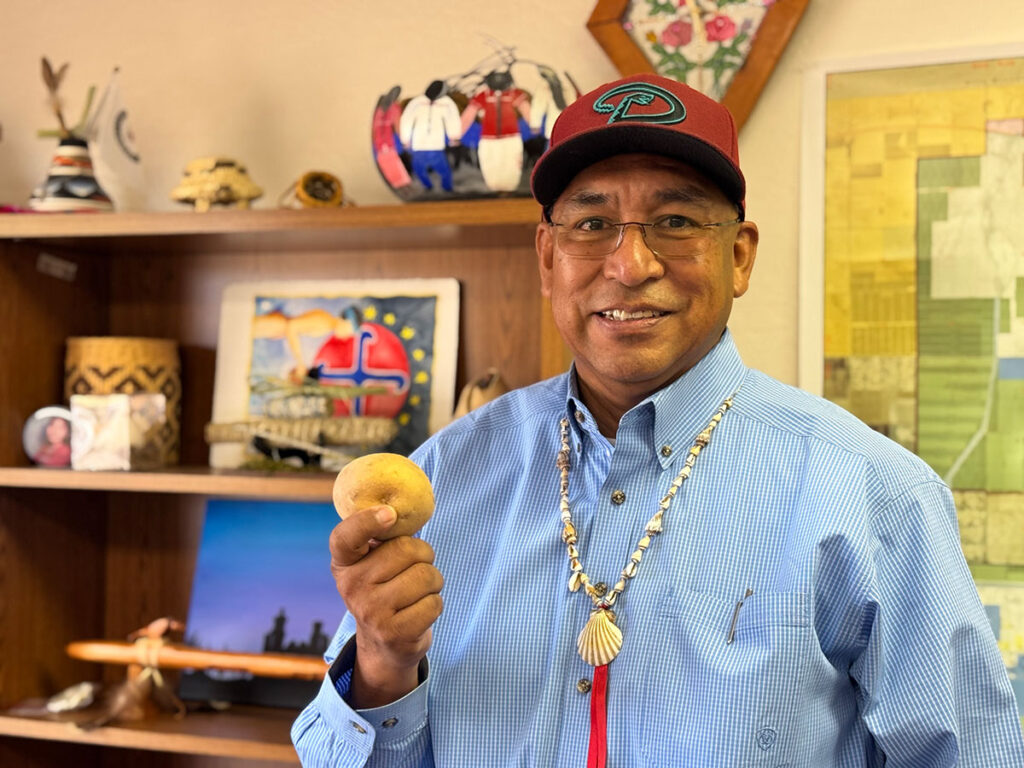
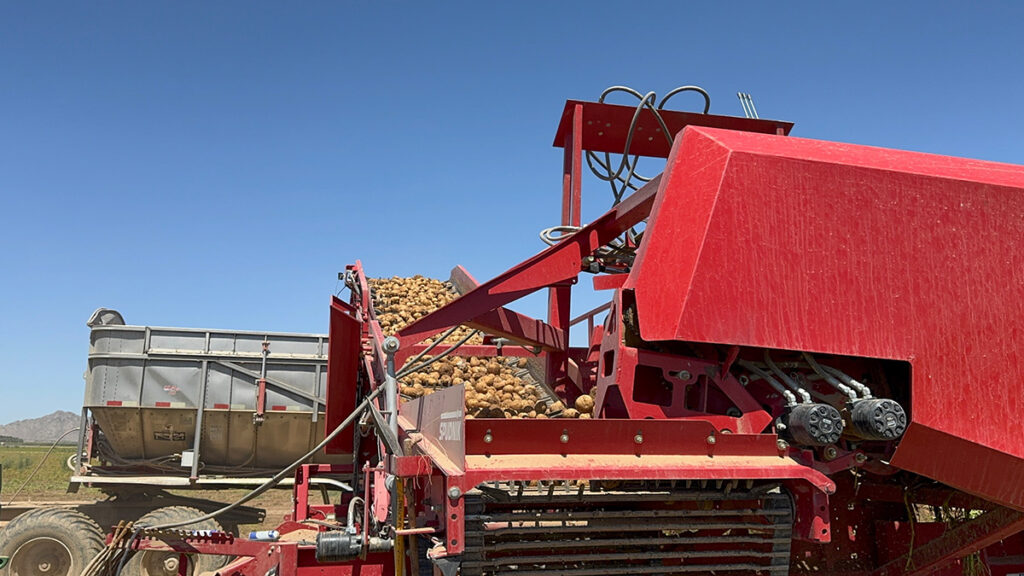
The tribal council and the farm board continue to strategize on innovative ways to enhance farm operations and how best to use the land and its CAP water. They hope to continue developing relationships with different marketers and grow greater crops. Chairman Lopez emphasized, “I see the future of Ak-Chin farming: we are going to be here for a long time with the grateful water settlement and the CAP water that is provided to us.” The farm will continue to expand to meet the needs of Arizonans. As farmers, the tribe is also invested in educating its youth to continue the farming practices of their people.
Tribes like the Ak-Chin Indian Community contribute to our state in many ways. Frito-Lay chips and the fries at In-N-Out Burger owe part of their deliciousness to the Ak-Chin people. Your taste buds are benefiting from the culture, traditions, and years of water advocacy of the Ak-Chin Indian Community.
KRA: Public Trust, Partnerships & Leadership
Earning and preserving public trust, building and maintaining partnerships, and providing informed water management leadership

